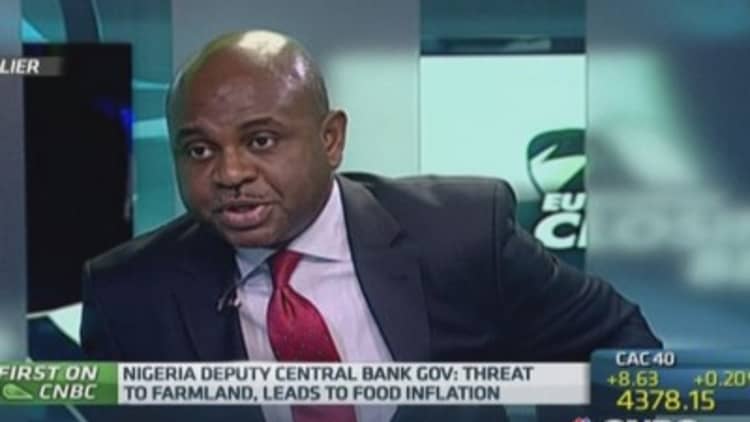
Increasing instability and Islamist terrorism in Nigeria's agricultural heartland is impeding food production and pushing inflation, the deputy governor of the country's central bank warned on Tuesday.
"In some parts of the north, the security situation has affected farmland production and that has led to some increase in food prices," Kingsley Moghalu told CNBC.
Read MoreOil is not Nigeria's future: Finance Minister
Although Nigeria has recently taken over South Africa as the region's biggest economy, it is also gripped by spiralling inflation, with prices up 8.2 percent in June on the same period a year before. Food prices rose by a steep 9.8 percent during the month.
Over the last 12 months, Nigeria has also suffered the highest rate of fatal terrorist attacks in the world, according to global risk consultancy Maplecroft. It has been rocked by 146 reported attacks in the past year, resulting in the death of 3,477 people, or an average of 24 people killed per attack.
Read MoreFatal stats: Global terrorism deaths soar
In particular, Boko Haram militants, who want to establish an Islamist state in Nigeria, have caused havoc, particularly in their heartland in the sparsely populated north. They have been globally vilified for kidnapping 200 school girls three months ago.
"Terrorism is always a difficult thing to fight. I mean, it took the U.S. 10 years to find Osama bin Laden," said Moghalu.
"It could get bad, but we do not expect it will get worse, simply because the security agencies and the government are doing some very important things to contain the Boko Haram situation."
—By CNBC's Katy Barnato


